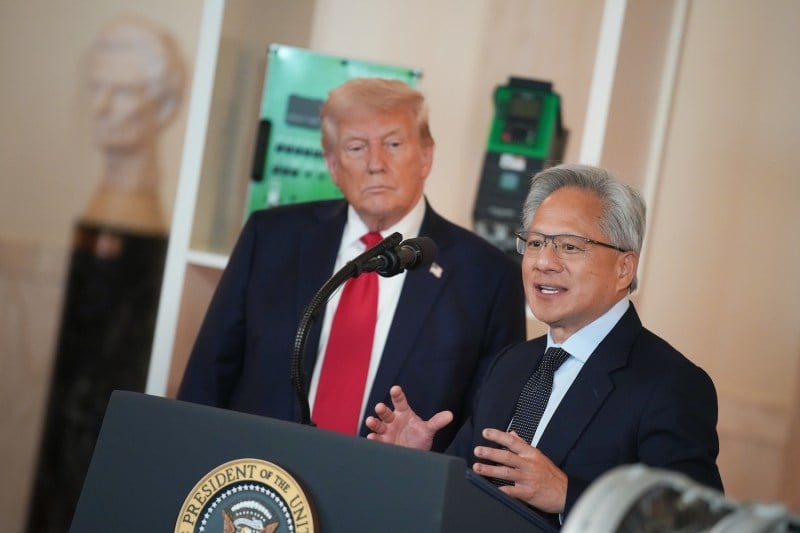
The U.S. government is experiencing notable inconsistencies in its approach to technology policies concerning China, particularly regarding semiconductor exports and TikTok. Recent actions by the Trump administration highlight a significant shift from stringent national security measures to more lenient stances that may undermine U.S. credibility and security interests.
The turning point came when the administration initially opposed the sale of Nvidia’s advanced H20 chips to China due to national security concerns. Just weeks later, the government reversed course, facilitating chip sales in exchange for a share of the profits. This strategy raises alarms as U.S. chip exports to Saudi Arabia may increase, despite China’s active engagement in the region.
The administration’s earlier efforts to ban TikTok, owned by China-based company ByteDance, also illustrate this flip-flopping. After considerable pressure to legislate a ban based on national security threats, the administration has since relaxed its stance. Reports indicate that a new agreement could allow ByteDance to retain a significant stake in TikTok, raising concerns about the algorithm’s oversight and data security.
Implications for U.S. National Security
These reversals create long-term vulnerabilities for the United States, particularly in its credibility regarding the security risks posed by Chinese technology. When national security policies appear negotiable in favor of economic gains, it sends a troubling message to both allies and adversaries.
For instance, during the previous administration, the U.S. campaign against Huawei was marked by claims of national security risks. However, these claims became less credible when the administration suggested that such concerns could be overlooked for trade benefits. This led to skepticism among close allies like the United Kingdom, which delayed its decision to ban Huawei from its 5G networks due to doubts about U.S. intentions.
The current administration’s recent decision to ease restrictions on Nvidia’s H20 chips, designed for applications such as artificial intelligence, reflects a similar pattern. While these chips could enhance China’s military and intelligence capabilities, the U.S. government’s willingness to negotiate on such critical issues undermines its position on national security.
Challenges in Coordinating International Tech Policy
The inconsistencies in U.S. technology policy could have far-reaching consequences. As the administration has shown a propensity to compromise national security for trade advantages, allies may begin to question the reliability of U.S. commitments. This skepticism could hinder future cooperative efforts to address threats posed by Chinese technology.
The U.S. also faces challenges in controlling the flow of technology in a globally interconnected environment. If other nations or companies continue to provide comparable technologies to China, U.S. restrictions will be ineffective. Multilateral coalitions are essential for enforcing robust technology controls.
Moreover, the credibility of the U.S. government is paramount for effective partnerships. If allies perceive that the U.S. is willing to sacrifice security for economic deals, they may be less inclined to support future initiatives aimed at mitigating risks from Chinese technology.
In conclusion, the recent fluctuations in U.S. tech policy not only jeopardize national security but also threaten the country’s standing in international relations. A consistent and firm approach is necessary to maintain credibility and effectively address the challenges posed by Chinese technological advancements. As the situation evolves, the U.S. must prioritize its national security interests to safeguard both its economy and its relationships with global partners.







